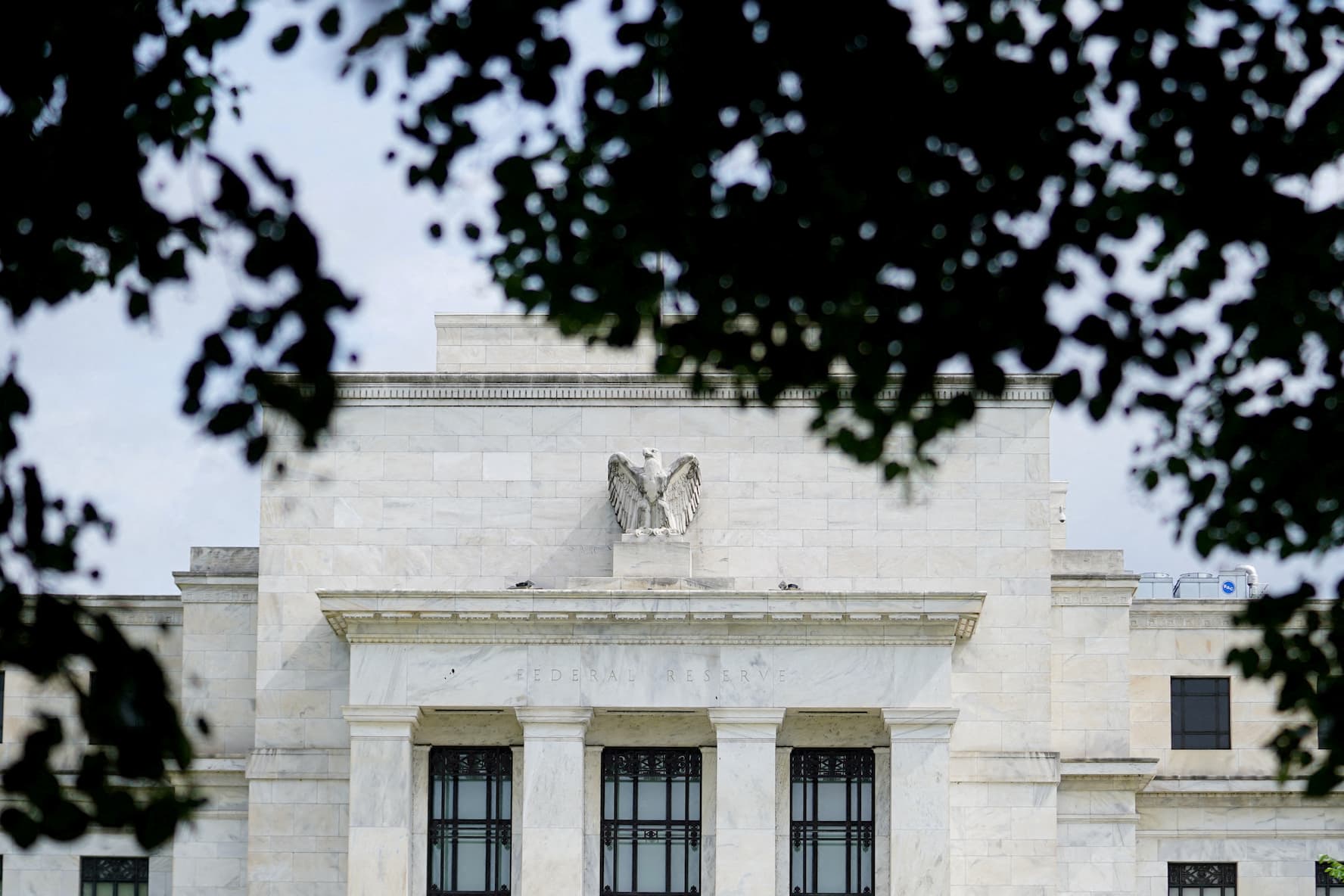



As the 2024 election approaches, the independence of the Federal Reserve has emerged as a critical issue, highlighted by Bridgewater Associates, a major hedge fund managing around $100 billion in assets. Co-CIO Greg Jensen has emphasized that the Fed's independence is vital for maintaining flexibility in monetary policy, especially in light of the significant economic risks tied to the election outcome and potential policy changes [f6e6697f].
In a surprising turn, Senator JD Vance has publicly aligned himself with Ron Paul's critique of the Federal Reserve, stating, 'I’ve come around to the Ron Paul argument' regarding the Fed's influence. Vance is calling for increased accountability and transparency in monetary policy, a stance that resonates with a segment of the GOP that is skeptical of traditional central bank policies. His remarks have sparked a debate within the party, with Representative Thomas Massie praising Vance's perspective while raising concerns among moderate GOP members about potential destabilization within the party [532ef874].
Former President Donald Trump has proposed that central bankers align their decisions with presidential views on interest rates, advocating for a significant shift in how the Fed operates. Trump has previously pressured the Fed to lower rates, warning that his influence could lead to harmful inflation. His advisors have suggested reforms aimed at diminishing the Fed's independence, including the controversial idea of establishing a 'shadow Fed chair' until Jerome Powell's term ends in May 2026 [9326dfb0].
In stark contrast, Vice President Kamala Harris has pledged to respect the Fed's autonomy, asserting that the central bank should operate independently of political pressures. Harris maintains that the Fed's decisions should not be influenced by the executive branch, a stance that aligns with President Biden's occasional comments supporting the Fed's rate hikes to combat inflation while respecting its independence [9326dfb0].
Recent polling data from Reuters/Ipsos shows Harris leading Trump 46% to 43%, indicating that public sentiment may be swaying in favor of maintaining the Fed's independence during this election cycle [f6e6697f].
The ongoing debate about the Federal Reserve's role and independence is further complicated by Trump's proposal for a shadow Fed chair, which has drawn criticism from economists who warn that it could create market confusion and undermine the credibility of the central bank [8485fcc8]. Ed Yardeni, a Wall Street veteran, has labeled the idea as 'terrible,' comparing it to the erosion of central bank independence seen in other countries [8485fcc8].
Additionally, a recent analysis highlights a notable shift in the political affiliations of Federal Reserve Bank directors. In 2023, only 8% of these directors donated solely to right-leaning candidates, a significant drop from 24% in 2015. Conversely, 34% of directors are now exclusively left-wing donors, indicating a lurch to the left within the institution [7348984b].
Overall, the contrasting plans for the Federal Reserve reflect deeper political divides as the 2024 election approaches, with significant implications for U.S. monetary policy and economic stability. Vance's support for Paul's 'Audit the Fed' bill may gain momentum, reflecting a growing willingness within the GOP to question mainstream financial policies [532ef874].